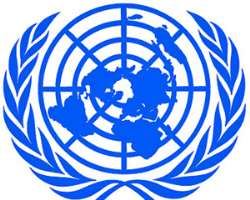Under-Secretary-General and Emergency Relief Coordinator Valerie Amos Statement to the Press Bamako, Mali 30 August 2012

BAMAKO, Mali, August 31, 2012/African Press Organization (APO)/ -- I have spent the past two days seeing for myself the effects of the terrible food and nutrition crisis that is now affecting at least 4.6 million people in Mali, as well as the difficulties faced by Malians affected by the insecurity in the north.
Yesterday at the Gabriel Toure nutrition centre in Bamako I saw how treatments that cost just US$100 are giving life back to very young children affected by severe acute malnutrition. Almost 150,000 children across Mali have been treated for acute malnutrition this year in facilities like this, most of them in the south of the country where 87 per cent of children live.
But there are too many other children who are not being reached because we do not have the money to increase our operations everywhere. We asked for $213 million to provide life saving projects this year; less than half of that has been provided. The 300,000 children across the Sahel who die of malnutrition every year are the face of this funding shortfall.
Today I visited Mopti to see for myself the humanitarian response mobilized by the Government and humanitarian agencies to help some of the more than 30,000 people who have been displaced to that region by the conflict in the north. People explained to me that they left their homes due to insecurity, but also because they had no more money to buy food since the collapse of the economy.
Without additional support, we are not going to reach everyone who needs help.
I have met with the President, Prime Minister, and representatives of the national and international humanitarian community. I am encouraged by the commitments being made by donors and development and humanitarian agencies to work with the Government in ensuring we don't just address the symptoms of this crisis but also help restore and build livelihoods. This is essential to ensure our work today helps make communities more resilient and better able to survive future crises.
Thank you.
